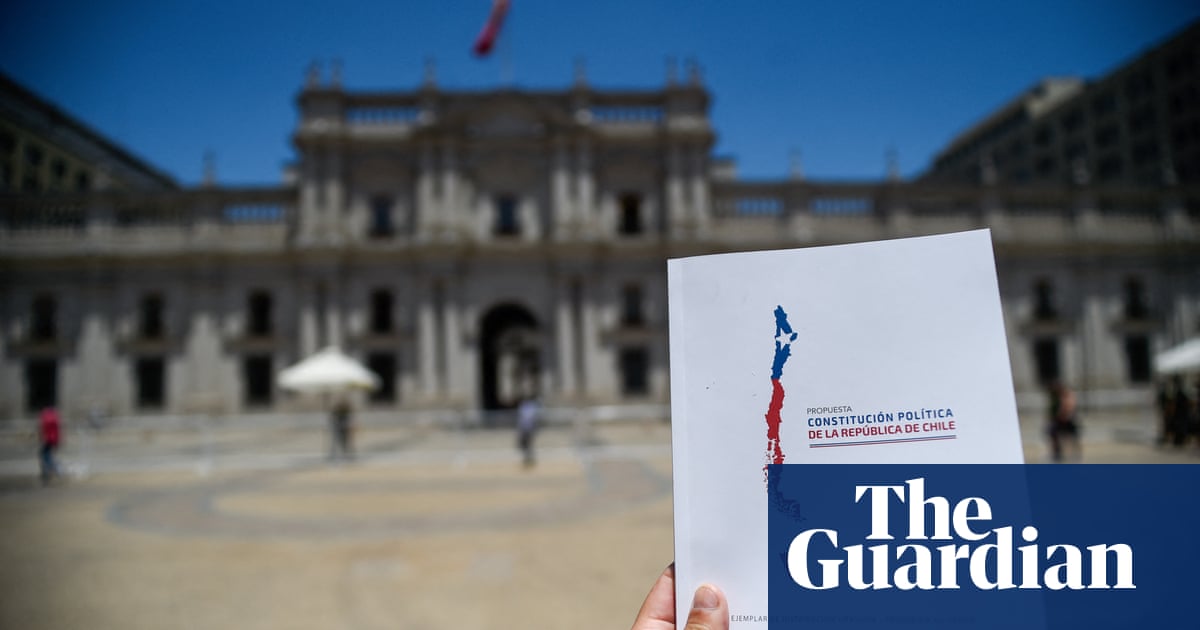
Chilean activists and analysts have cautioned that large portions of the country’s citizens could face negative consequences if a proposed new constitution created by conservative legislators is accepted in a national vote on Sunday.
Chilean citizens are faced with a difficult decision as they participate in a mandatory vote to determine whether to replace the 1980 constitution, which was written during the dictatorship of Augusto Pinochet and has been amended since then. They are torn between feelings of weariness and bitterness.
“Children, women, the environment and the welfare state will be the losers,” said Antonia Rivas, a lawyer and anthropologist who helped draft an earlier version.
She stated that the proposal, created by a 50-person council dominated by the far-right Republican party, would benefit those who already hold the most power.
Rivas states that the most recent version addresses current hot topics, such as illegal immigration and public safety, resulting in a document that resembles a Republican party statement.
According to her, creating a constitution without considering all individuals is bound to be unsuccessful. In her view, this has been proven twice in the past.
Last year, voters rejected a previous draft in a similar referendum. This version was considered one of the most progressive constitutions in the world, but it was overwhelmingly rejected by 62% of voters.
At that juncture, the responsibility was handed over to Congress and the constitutional issue was firmly placed in the control of the established political elite.
The recent plan is widely viewed as an expression of the conservative, nationalist Republican party’s ideological agenda.
It contains clauses declaring it a Chilean’s “duty to honour the fatherland and its national symbols”, including controversial sports like the rodeo.
In different regions, there is a perplexing combination of conservative beliefs, such as a proposed law that protects homeschooling – a topic that has rarely, if ever, been discussed in Chile.
The suggestion reduces the number of seats in the chamber of deputies, which is Chile’s lower house of Congress. This decision goes against the widespread desire for more decentralization and representation in Chilean politics.
In conclusion, it states that the government is responsible for promoting fair competition, business ownership, and creativity, and strongly emphasizes safeguarding private ownership.
One of its most disputed principles includes a provision that safeguards the “life of the unborn”, which numerous experts argue could result in the criminalization of abortion in Chile. Currently, abortion is permitted in cases of rape, risk to the mother’s life, or if the baby is not expected to survive after birth.
According to Sofía Rodríguez, the representative of Coordinadora Feminista 8M, this constitution poses a threat to women as it jeopardizes the rights that have been secured through social movements.
This proposal is a regressive move for Chile, and certainly a setback for women in Chile.
The Republicans disagree.
Beatriz Hevia, 31, the elected president of the constitutional council for the Republican party, stated that the constitution contains components that are agreeable to all. She added that if one political group favored the entire document, it would indicate a lack of effort on their part.
Hevia has stated its support for pay equality and ensuring women’s access to elected positions. The proposal also includes a mechanism to ensure that neither gender holds more than 60% of the seats in the chamber of deputies.
The most recent poll before the vote shows that the “against” option is leading with a range of 55% to 68%.
The choice for “in favour” has been increasing, but no survey has predicted its success.
If this suggestion is also denied, the future for Chile is uncertain, although the current 1980 constitution will still be effective for the time being.
The current president, Gabriel Boric, has stated that there will not be a new constitutional process until his term ends in 2026.
Source: theguardian.com
















